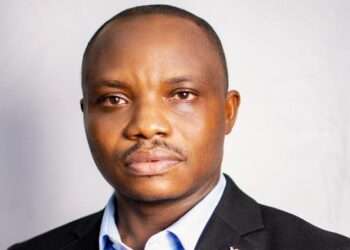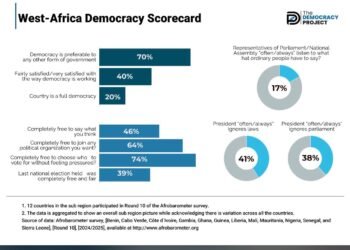Author: Evans Senior Owu: A Columnist
After the truncation of Ghana’s most visionary and industrially focused regime under Osagyefo Dr. Kwame Nkrumah in 1966, our Republic took nearly three decades to settle into a stable democratic governance under the 4th Republic Constitution.
In the period between 1966 -1992 that Ghana spent demonstrating its finesse in coup d’etat, economic regression, collapse of state enterprises through contrived privatization, kalebule etc, its sister newly emerged independent state in Asia — Singapore dedicated the same period to build a strong and knowledge-based economy with high standard of living, low inflation, stable and appreciable currency, unemployment rate of less than 3%, dignified housing system, clean government, and fairer society – earning the nation the title of an “Asia Tiger”
When Ghana transitioned into the 4th Republic, the promise was clear: stability, peaceful transfer of power, probity, accountability, freedom, justice and prosperity for all.
The Directive Principles of State Policy, explicitly enshrined the equitable distribution of national wealth and resources and the aspirations of just, free and prosperous Ghana. And yet, after almost 32 years of the Fourth Republic—nine competitive elections, four successful transfers of power between the two dominant parties (the NDC and NPP)—the reality remains sobering. Ghanaian citizens, especially the youth, are offered little beyond hope, a fragile promise too often dashed by the close of each government’s two-term limit.
The Alarming State of Youth Unemployment
Recent data from the Ghana Statistical Service paints a troubling picture. According to the Government Statistician, Ghana’s unemployment rate declined slightly from 13.3% in Q3 of 2024 to 13.1% in Q4. However, beneath this modest decline lies a persistent crisis: youth unemployment remains alarmingly high — 22.5% for ages 15–35, and a staggering 32% for ages 15–24.
The World Bank’s 9th Economic Update for Ghana underscores the crisis: between 2012 and 2023, Ghana’s working-age population grew by 2.7 million, but only 250,000 net jobs were created. This mismatch has trapped many young people in low-income, insecure, and low-productivity sectors, the report further added.
The crisis is not limited to unskilled or semi-skilled labor. In a recent press briefing, the Minister of Health disclosed that over 70,000 trained health professionals, who graduated between 2019 and 2024, have yet to be absorbed into the Ghana Health Service. Highly skilled and educated youth are being left idle—not because they lack capacity, but because the system cannot absorb them.
For many young Ghanaians, this means prolonged dependence on parents, erosion of self-worth, mental health struggles, and increased vulnerability to exploitative practices. For some of them, jakpa (migration) in pursuit for jobs or schooling have been their redemption for a dignified life while others are lured into vices or radicalized by political patronage.
A Democracy Reduced to Electoral Festivals
Part of the problem lies in the nature of Ghana’s democracy. What was envisioned as a governance system to drive accountability and development has largely devolved into an endless cycle of electoral politics.
Our four-year electoral calendar, rather than fostering long-term national development planning and implementation has become an impediment. The timeline is crowded with one election or reorganization after another: presidential and parliamentary elections, Council of State elections, MMDCE confirmations, political party primaries, and local government elections. As a result, governments spend barely half their tenure focused on actual governance—the rest is consumed by preparations for the next vote.
Take the current situation: barely eight months into President John Mahama’s return to power in January 2025, the main opposition (NPP) is already reorganizing for the 2028 elections, with internal presidential primaries scheduled for early 2026—three years ahead of the polls. What should be a season of deep reforms and development has instead become another electoral countdown and little space is left for sincere development focused public discourse.
The financial cost of this obsession is staggering. The Centre for Democratic Development (CDD) estimated that contesting parliamentary primaries and elections between 2012 and 2016 cost about GH₵4 million per candidate. By 2023, the cost of winning a presidential election exceeded GH₵1.5 billion.
These are resources that could have revitalized agriculture, industry, and innovation but are instead diverted into political campaigns, leaving real sectors of the economy underfunded and unable to create jobs.
Beyond Churches and Elections
In the midst of this, one cannot ignore the paradox of Ghana’s thriving sectors: churches and elections. We seem to have built more churches than factories to produce something as basic as matches. While faith remains important to our cultural identity, it must be complemented by deliberate efforts to build productive sectors.
As one Asian minister once remarked, “It is not only about prayer in tongues and big hallelujahs — it is about possessing and understanding.” Without science, technology, and industrialization, prayers alone cannot feed our youth or restore their dignity.
What Must Be Done
Hope alone is no longer enough. The young people of Ghana—the majority of our population—deserve substance. To restore dignity and create opportunity, urgent steps must be taken:
Recommit to Long-Term National Development Planning: To break the cycle of short-termism that has plagued Ghana’s development, it is crucial to anchor national progress in long-term, enforceable development blueprints that are shielded from partisan disruptions every four years. Our political class has consistently exploited discretionary powers for narrow interests, undermining continuity and sustainability.
The ongoing constitutional review process presents a unique opportunity to carry out far-reaching reforms that can realign governance with national aspirations. One critical reform should be the extension of the presidential tenure to six years, paired with a ban on political parties engaging in electoral activities within the first four years of any administration. This would give governments adequate room to focus on governance and delivery rather than perpetual campaigning.
Furthermore, to ensure coherence, every manifesto pledge made by ruling governments must first be translated into evidence-based policies, programmes, and projects vetted and aligned by the National Development Planning Commission (NDPC) to fit within the country’s medium-term development framework. This would not only strengthen accountability but also guarantee that national priorities outlive electoral cycles.
Tackle Corruption Decisively: Corruption continues to drain Ghana of billions of cedis annually—resources that, if protected, could transform job creation, industrial growth, and social services. For the new government, its promised Operation Recover All Loot (ORAL) must not be reduced to mere rhetoric; its success will be the lifeblood of our democracy. To achieve this, anti-corruption institutions must be strengthened with genuine independence, prosecutorial powers, and adequate resourcing to pursue cases without fear or political interference.
A critical component of this reform is overhauling the justice system to eliminate delays that undermine accountability. Justice delayed is justice denied, and in Ghana’s case, justice is often permanently denied. The AG Department should initiate the process to enact a legislative instrument that sets strict, enforceable timelines for the prosecution of criminal cases, preventing trials from dragging on for years until political tides shift.
Equally, the regressive practice of judicial vacations—where superior courts go dormant for months between August and October—must be abolished as untenable in modern governance. To further accelerate accountability, the regional tribunal system should be fully reintroduced and empowered to complement existing courts, ensuring that corruption cases are prosecuted swiftly and conclusively.
Without such bold reforms, Ghana will remain trapped in a cycle where corruption cases collapse with every change of government, often dismissed through nolle prosequi. The fight against corruption must therefore move beyond promises; it must be institutionalized, time-bound, and relentless.
And finally, Ghana’s economic management must move beyond the narrow focus on macroeconomic stability and debt consolidation, which, while important, have not translated into tangible opportunities for citizens.
The time has come to channel resources into the real sectors of the economy—agriculture modernization, digital innovation, green industries, and manufacturing—sectors with the potential to drive sustainable productivity and create millions of decent jobs.
Investments that are currently wasted on excessive campaign financing and electoral festivals must instead be directed towards industrialization, agribusiness value chains, and the digital economy. Only then will the constitutional pledge of economic prosperity for all move from rhetoric to reality, restoring dignity and substance to our young people.
A Call to Action
Ghana’s youth have waited long enough. They are not merely statistics in quarterly unemployment reports—they are living human beings whose dignity, aspirations, and futures are being stolen by structural failures and political short-sightedness.
As we continue with yet another administration, we must demand more than rhetoric and electoral rituals. We must demand a government—and an opposition—that places the people, especially the youth, at the center of national policy. For without meaningful jobs, decent wages, and a dignified life for the majority of our citizens, democracy itself will lose its legitimacy.
Hope, though important, is not enough. The Ghanaian youth deserve substance—opportunities that are tangible, sustainable, and transformative.
READ ALSO: CDD-Ghana Fellow Demands End to Long Judicial Vacations























